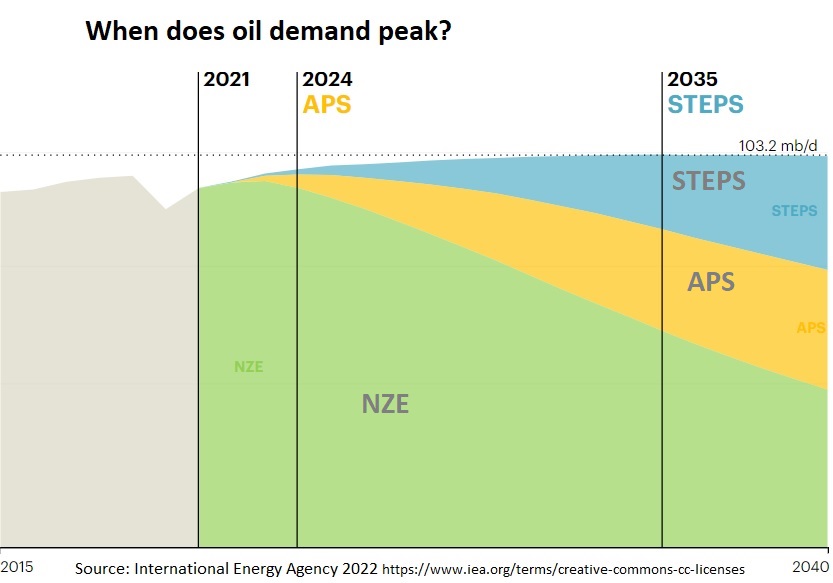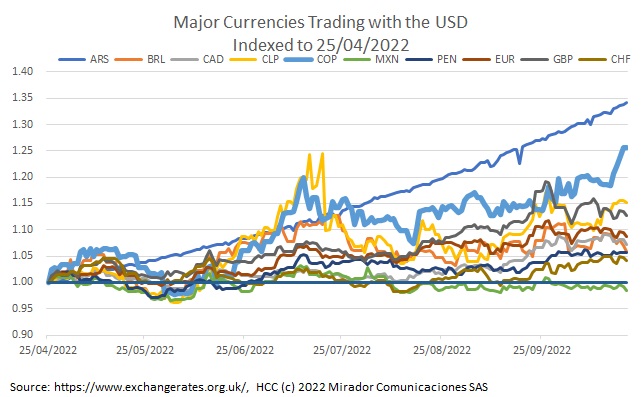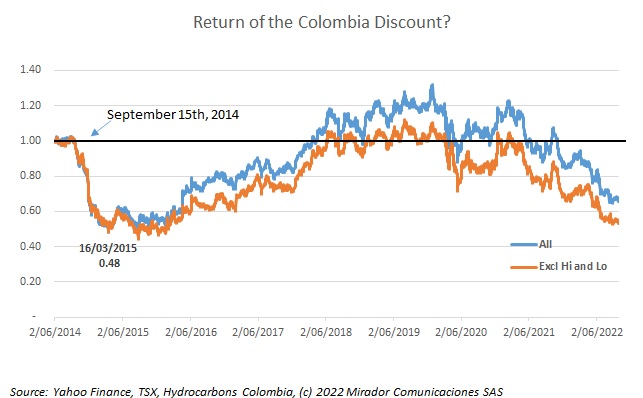
One of the key questions underlying the debate about the oil and gas industry in Colombia concerns when demand will peak and so for how long can public finances count on the flow of exports and tax revenues. Gustavo Petro’s “Illuminati” believe we all should stop using fossil fuels today and stop producing the stuff. More pragmatic observers think it too soon to (as some headlines put it) kill the goose that lays the golden eggs. Recently the International Energy Agency (IEA) weighed in with its view, based on various climate change scenarios.
The so-called FARC dissidents cause headaches for President Gustavo Petro’s “Total Peace” plan and this month’s debate over enabling legislation brought the issues to the fore, unfortunately without permanent resolution. The ELN process moved a small step and land reform took a giant leap.

Our readers located outside of Colombia may not have noticed but the Colombia peso has soared lately, and pundits expect it to cross the 5,000 pesos-to-the-dollar barrier any day. It may have already done so by the time you read this article. Inevitably the finger pointing has started. Colombian President Gustavo Petro blames the United States. Business groups tend to blame Petro. In the interest of truth if not beauty, we looked at the data.
In late October of 2012, the ANH held a block auction as the centerpiece of a conference in Cartagena. Tomás de la Calle and I attended, distributing paper copies of the first Hydrocarbons Colombia monthly. The website had come up earlier in the week. Now, ten years after, the website continues to keep you informed, if not always entertained.

Or maybe it is Irene Vélez’s fault but in any event the change in government has clearly impacted the share prices of Colombia-focused oil and gas producers. To no one’s surprise (we assume), Ecopetrol is among the hardest hit.
You are probably reading this on October 4th, 2022, less than two months after Gustavo Petro was sworn in as Colombia’s president. Amongst other broad commitments he said “I will work to achieve true and definitive peace.” Specifically, he announced that he would immediately begin negotiations with the ELN. Shortly after that, Petro began talking about a “Total Peace”, incorporating not only the ELN but the narcos who continue to terrorize parts of the country.

As the lead graph shows, crude oil production rose this year (10,786bd). Not much (1.5%), but it rose. Here’s why.
Among MinEnergia Irene Vélez’s many ‘faux pas’ is telling the Colombian Mining Association’s annual conference that developed countries should shrink their economies to reduce the load on the environment. This would also allow her and her cabinet colleagues to reduce the extractive sector – guilt free – because there would be less consumption.
We spoke to Maria Lara Estrada of LATAM Airlines Colombia and she told us that the secret to cleaner aviation is all in the process. Sustainable Aviation Fuel (SAF) is the airline industry’s solution to lowering air travel emissions. (This was published last week in our sister publication ePower Colombia. We know that many of you read both but we thought this article was important to be in the two databases, for those that do not subscribe to both and for future searches.)